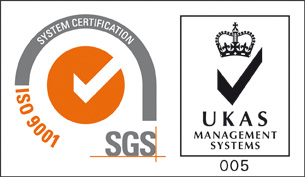The UNCAC Coalition aims to mobilise broad civil society support for UNCAC and to facilitate strong civil society action at national, regional and international level in support of UNCAC.
Starting Nov 9, representatives of the 141 countries that have signed up to the are arriving in Doha to decide whether to adopt a review mechanism that would give the treaty teeth.
See who the members are and how your organisation can join.
Third Conference of States Parties (CoSP)
CSO Coalition Calls for Adoption of Effective Review Mechanism
at the Third CoSP, Doha, 9-13 November 2009
- Corruption undermines democracy, the rule of law, human rights, civil liberties and sustainable development. The UNCAC Coalition (the Coalition) believes that the United Nations Convention against Corruption (UNCAC), with its worldwide membership and comprehensive anti-corruption framework, is key to dealing effectively with global corruption. In its many provisions on transparency and accountability, the UNCAC includes measures that, if implemented, will contribute to preventing a recurrence of the current global financial crisis.
- The Coalition is convinced that UNCAC's success in reducing corruption on-the-ground will depend greatly on the adoption of an effective and participatory review mechanism at the Third Conference of the States Parties (CoSP) in Doha, in November 2009. Such a review mechanism is also vital for the success of UNCAC's landmark provisions on asset recovery and the assessment of countries' technical assistance needs, as well as for strengthening international cooperation and enhancing the responsiveness of governments to their citizens
- The Coalition considers that the review mechanism should be comprehensive, covering both mandatory and non-mandatory articles, and including the following features:
- supported by a well-resourced secretariat
- assisted by a group of independent experts
- based on tested review methods, including peer review and country visits
- participatory, involving civil society organisations and other stakeholders
- transparent, resulting in published country reports with recommendations
- carried out in coordination with regional review mechanisms
- funded from the regular UN budget or assessed contributions, supplemented as needed by voluntary contributions
- The Coalition is convinced that the effectiveness of any UNCAC review mechanism depends on involvement of civil society and its access to information about the process and its outputs. The Coalition reminds States Parties that they have committed to supporting civil society participation in anti-corruption efforts and to receiving civil society inputs to their deliberations. (UNCAC, Article 13; Rules of Procedure, Rule 17). The Coalition urges them to draw on international best practice in this area, as demonstrated by the review processes of other anti-corruption conventions (notably of the Council of Europe, the OAS and the OECD), all of which provide for civil society inputs and publish evaluation reports.
- The Coalition calls on Governments to ensure that draft terms of reference for an effective review mechanism are ready for adoption in Doha, in November 2009
- Without a robust review mechanism, the effectiveness of UNCAC will be severely compromised, with serious consequences for the lives and livelihoods of citizens around the world and for the credibility of signatory Governments and the United Nations
9 November 2009
The issue of review of implementation was not resolved when the UN Convention against Corruption (UNCAC) was adopted in 2003, and the decision was deferred until after UNCAC entered into effect. The First Conference of States Parties (CoSP) in December 2006 agreed that “effective and efficient review of the implementation of the Convention…is of paramount importance and urgent.” This represented an important agreement in principle. However, the Second CoSP in January 2008 made little progress, largely due to opposition from members of the G77 to elements of an effective mechanism.
During the past year a Working Group on Review of Implementation has held several meetings to define the review mechanism and its terms of reference. While there has been progress, important issues remain unresolved. The Working Group will meet again on 11-13 May and in September 2009. The Third CoSP will meet in Doha during the week of 9 November 2009 and action on the review mechanism is the most important issue on the Doha agenda. Because of the complexity of a decision-making process involving 140 governments, unless controversial issues can be resolved well in advance, the prospects for Doha are poor.
The central question is whether the CoSP in Doha is prepared to establish an effective review mechanism. Failure to establish such a mechanism this year would be a major setback, damaging the credibility of UNCAC and its ability to develop momentum in curbing corruption around the world.
The global nature of the current financial crisis reinforces the importance of UNCAC because other conventions do not have global reach. The financial crisis also makes it urgent that critical UNCAC provisions are implemented promptly. (Examples include articles covering transparency and accountability in management of public and private sector finances, public procurement reforms, bank secrecy and measures for improved international cooperation.) Failure to establish the review mechanism this year would defer action for another two years, thereby making UNCAC largely irrelevant to the solution of the financial crisis.
Read the whole document...(.PDF)
Corruption is an insidious plague that has a wide range of corrosive effects on societies. It undermines democracy and the rule of law, leads to violations of human rights, distorts markets, erodes the quality of life and allows organized crime, terrorism and other threats to human security to flourish. This evil phenomenon is found in all countries—big and small, rich and poor—but it is in the developing world that its effects are most destructive.
Corruption hurts the poor disproportionately by diverting funds intended for development, undermining a Government’s ability to provide basic services, feeding inequality and injustice and discouraging foreign aid and investment. Corruption is a key element in economic underperformance and a major obstacle to poverty alleviation and development.
 home
home
 Print this page
Print this page TI Romania
TI Romania
